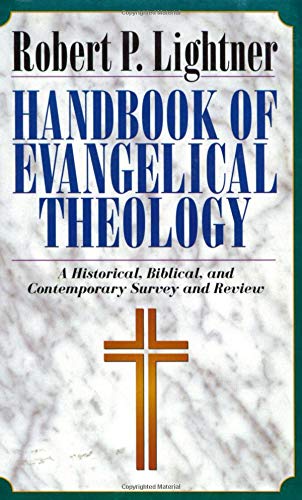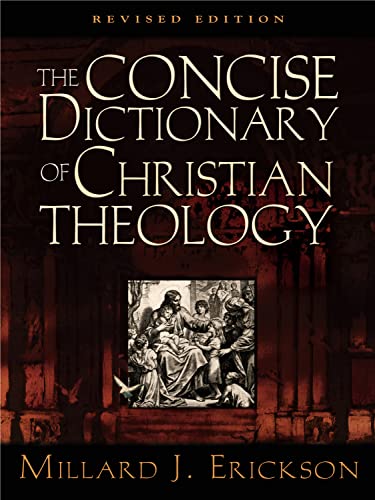Volume 13 - Issue 2
Marriage and singleness in Paul and today
By David WenhamOne of the commonest misunderstandings around—among theologians and others—is that the apostle Paul had a negative view of marriage and sex. In fact, on this, as on so many other matters, he had a positive and balanced view, which we would do well to embrace in an age when there is so much confusion and hurt in this area. We could sum up the Pauline view—and indeed the view of Scripture as a whole—under three headings:
- Human sexuality is an important, powerful and good part of God’s creation. Paul’s description of the church as the radiant bride of Christ in Ephesians 5:22–33 is the most obvious evidence for his positive view of marriage. He portrays the marriage relationship as something beautiful (compare Rev. 21:2, 9), and not just as beautiful but as comparable to the intimate relationship of love between Christ and his church. And, lest anyone suppose that he has an unreal, other-worldly view of marriage (as some people do have), it should be noted that he refers specifically to marriage as something involving the bodies of husband and wife.
The Ephesians passage is not isolated in Paul’s writings: in Romans 7:4, 1 Corinthians 11:3 and 2 Corinthians 11:2 (where he speaks of presenting the Corinthians to Christ ‘as a pure bride to her husband’) he compares divine-human relationships with the relationship of husband and wife.
1 Corinthians 7 is often thought to present a negative view of marriage on Paul’s part quite different from that in Ephesians 5; this has been used as an argument against the Pauline authorship of Ephesians or seen as an indication that Paul underwent a major change of opinion. But this is to misunderstand the passage, and in particular to fail to recognize the problem Paul is dealing with in the chapter. The problem is that some in Corinth were putting forward the view that ‘it is good for a man not to touch a woman’ (v. 1). What they meant, as is apparent from Paul’s comments on their views, is that those who are spiritual should not have sexual relationships, and they suggested that husbands and wives should not come together (v. 3), that the unmarried should remain unmarried (v. 8, etc.), and perhaps even that the married, certainly those married to non-Christians, should divorce their partners (vv. 10ff.). So there were indeed people in the early church who were negative towards sex.
Paul, however, rejects their supposedly spiritual asceticism, and, although he does believe that there is value in singleness (a point to which we shall return), he opposes the anti-sex lobby at almost every point, arguing that husbands and wives should not deprive each other of sexual intercourse, that unmarried people, except those with the special gift of singleness, should marry, and that divorce should be discouraged not encouraged. Paul recognizes very clearly in this chapter the power of the sexual drive, and when he speaks about the dangers of immorality when people are unmarried, he is not downgrading marriage so much as attacking the dangerous foolishness of those who fail to recognize the power of sexual instincts, which should not be suppressed.
That Paul’s view of marriage even in 1 Corinthians 7 is positive is hinted at in verse 4, where he speaks in a remarkable way of the equal rights of husband and wife over the partner’s body. He probably has in mind here the thought that is explicit in Ephesians 5 about husband and wife becoming ‘one flesh’; he has referred to that creation principle (Gn. 2:23) in 1 Corinthians 6:16, when explaining that prostitution is not to be contemplated, and he probably has it in mind too in 1 Corinthians 6:18, where he says, ‘he who sins sexually sins against his own body’. It becomes clear that for Paul sexual union expressed in marriage brings husband and wife into a profound union, such that they can be thought to have a shared body: the two have become one.1 It is this principle which Jesus in Matthew 19/Mark 10 uses as an argument against divorce and which Paul, who no doubt learned it from Jesus (cf. 1 Cor. 7:10, where he refers to Jesus’ teaching), uses both to exclude immorality and to explain the mutual responsibilities of husbands and wives.
We conclude that, although Paul does not spell out his understanding of marriage in 1 Corinthians 7 (since he is not addressing the question of marriage as such in this passage, but the ascetic question), he does imply the same very high view of marital union as is found in Ephesians 5. The repeated comparison that he makes of marriage to divine-human relationships, and even to relationships within the Godhead (e.g. 1 Cor. 11:3f.), suggests that he saw marital union as modelled on and a reflection of divine relationships—the highest and most beautiful relationships of all.2
If some or most of this analysis is correct, then the idea that Paul is anti-marriage and sex is very far from the mark. In fact he has about as high a view of marital union as one can imagine, far higher than the views of many moderns who glorify sex, but who see it as little more than an animal instinct or as an evolutionary mechanism for propagating the species. The Pauline and Christian view has all sorts of implications: it means that sex is not something to be embarrassed about or ashamed of, but, as part of God’s good creation, is something to be thankful for and to be enjoyed. It means that sexual feelings, thoughts and drives are natural and powerful; to experience them is normal, not something unspiritual or to be alarmed about. On the other hand, it means that the proper use of sex is vitally important. To this we will return.
- Sex is not the most important thing in life. Paul, as we have seen, has no time for the asceticism that sees marriage and sexual union as unspiritual; he sees marriage as very good. But he does not consider it the highest good or as an essential of human life. Indeed he sees singleness as an even higher calling than marriage, not in itself, but because of the ‘shortness of the time’ and the passing nature of this world (1 Cor. 7:7, 25–35, 38).
We are reminded of Jesus’ teaching about living for eternity and laying up treasure in heaven: he announced the coming of God’s wonderful and exciting kingdom and told his disciples to seek the kingdom rather than worry about the things of this present passing age (cf. Mt. 6:25–34). He also explained that marrying is a this-worldly activity, not an activity of heaven (Mt. 22:23–33). Paul reflects the same priorities in his teaching: he believes that the Christian, whether married or single, should be looking and living primarily for the world to come (cf. 1 Cor. 7:29–31), but he knows that this is simpler for the single person (if he or she has the gift of singleness) than for the married person, since married people have to work out their devotion to the Lord in the context of a very demanding this-worldly commitment. In commending singleness Paul is not being anti-marriage or anti-sex; he insists that there are different callings and that each must live the life the Lord assigns him (1 Cor. 7:17). But he is being realistic about the complications of marriage and family, and consistent in his Christian priorities. Given a belief in the kingdom of God as the supreme joy and priority in life, there is no point in single Christians getting married for the sake of it. On the contrary the single person, who has the gift of self-control, can give himself or herself undistractedly to the Lord’s work in ways that others cannot. Paul was a living proof of the point, as was Jesus, as have been other great Christians since. It is a gift, given only to some, to remain single, not dissimilar to other gifts such as teaching and healing, enabling the person concerned to minister in ways that those with other gifts cannot.
The importance of this teaching is considerable. Secular society tends both to romanticize and to idolize sex, and to suggest that the person who does not get sexual fulfilment in marriage or in some other way has missed out in life. The Christian wants to affirm the goodness of sexuality and sexual relations, but to affirm also that they are not the most important thing in life. Nor is singleness the greatest disaster in life: for some who are not conscious of being gifted in this way it may be exceedingly hard to live with, and they deserve all the support and understanding that they can get; for others it is a gift that gives them opportunity for more effective service and ministry. But the ultimate fulfilment and joy for the Christian, whether married or single, lies not in this world, but in the relationships of the world to come, of which marital union is only a pale copy.3
- Use according to the maker’s instructions. Paul’s very high view of human sexuality leads him to insist on its proper use. We have already seen how Paul rules out immorality because it is in contradiction to the ‘one-flesh’ way God designed marriage, and how for the same reasons he urges husbands to love their wives and both husbands and wives to give each other proper marital rights. For the same reasons he tells couples intending to split up to seek reconciliation rather than remarriage, and he insists that Christians embarking on marriage must marry ‘in the Lord’ (1 Cor. 7:10, 11, 39).4
Sometimes Christian morality is seen as negative and restricting, but we can see how the Pauline view of marriage has negative implications (e.g. about immorality), but also positive implications (e.g. about the place of sex in marriage). But even the negatives of the Pauline teaching are not a reflection of a negative view of sex, but of a supremely positive view. (There is a parallel in the Christian’s ‘negative’ view of abortion, being a reflection of a very high view of human life.) It is a low view of sex which sees it as little more than a pleasurable animal function, and which accordingly says that almost anything goes sexually (except perhaps the conceiving of unwanted children). That supposedly liberated view leads to chaos, because sex is a powerful force with dangerous potential when misused; it leads to the sexual distortions, unhappiness and violence that are characteristic of the ‘free’ societies of the West, as well as to the aborting of millions of unwanted children. The Christian and the Pauline view sees sex as a great good created by God, to be used with care in the context of a loving, ongoing relationship between one man and one woman. In that context human sexuality can be the joyful, beautiful thing that it is designed to be, rather than the ugly thing that the human race has often made it.
Of course Christians never live up fully to the Maker’s instructions. But the intended pattern is clear, and the challenge of Paul to those who are married is to live out the pattern, loving each other, giving to each other, and holding together even when tempted to pull apart. It is important in the modern world, where there is so much confusion and so many anti-Christian pressures, that we understand and teach the Christian view of sex and marriage, not just to those who are married, but to those who will marry. We need to show people that Christian ‘narrowness’ is not negative, but liberatingly positive, and that Paul got it right!
1 The biblical phrase ‘becoming one flesh’ is not simply stating the obvious fact that the bodies of man and woman become physically linked for the moment of sexual intercourse, but it is saying that, through coming together, the partners become bound to each other in a new and intimate relationship. This new relationship represents in some sense at least a break with old family loyalties (‘leaving father and mother’) and the beginning of a new family unit.
2 Paul does not explicitly say that marriage is for the procreation of children; he emphasizes the relationship of husband and wife to each other in a way that is significant. However, his failure to mention the procreative purpose of marriage is probably because that was not a question he needed to address in his letters rather than because it was unimportant for him. It is probable that he presupposes the OT understanding of marriage as being ‘to bear fruit’ (in terms of children; cf. Gn. 1:28; Rom. 7:4–5), and his teaching about marriage is regularly followed by teaching concerning family life. Although our modern context is different from Paul’s (so that we need to take our responsibility in the matter of over-population very seriously), he would, we suspect, have resisted any trend towards understanding marriage as being only for the mutual benefit of the two partners. Marriage is the bringing into being of a new family and household, and the model of divine relationships would suggest that it is to be an outgoing and creative relationship.
3 A sensitive book on the question of human sexuality in the modern world, which may not be known to Themelios readers, is Man and Woman He Made Them, by the Roman Catholic Jean Vanier (Darton, Longman and Todd, 1985). The author, founder of the L’Arche communities, is writing in the first instance about ministry with mentally handicapped people—and his book is important reading for those involved in such ministry—but it has wider relevance and value.
4 There are differing scholarly opinions as to whether Paul envisaged any situation in which a Christian could divorce and remarry. Much of Paul’s teaching on marriage (and indeed singleness) probably owes its origin to Jesus’ teaching as found in Matthew 19/Mark 10, and in 1 Corinthians 7:10–11 Paul explicitly echoes and endorses Jesus’ teaching on the question of divorce. For Jesus and Paul, marital breakdown and divorce are never good, but the judgment as to whether either ever permitted remarriage of divorced people depends on one’s understanding of the so-called ‘Matthean exceptions’ of Matthew 5:32 and 19:9, and of the ‘Pauline permission’ of 1 Corinthians 7:15. Interpreting these texts is a delicate business, not only because of the difficulty of the texts themselves, but also because of the personal and pastoral pressures that affect the interpreter. For a helpful discussion of the whole issue see David Field’s Talking Points article, ‘The divorce debate: where are we now?’, in Themelios 8:3 (1983), pp. 26–31. For further discussion see W. A. Heth and G. J. Wenham, Jesus and Divorce (Hodder, 1984), who in a careful study judge that there is no NT permission for remarriage; John Stott in his Issues Facing Christians Today (Marshalls, 1984) discusses a wide range of contemporary issues with his usual care, and in his chapter on marriage and divorce argues that remarriage is permitted in some cases of immorality and desertion; most recently Ward Powers, in his Marriage and Divorce: The New Testament Teaching (Jordan Books, 1987), argues that the NT is against marital breakdown, but permits remarriage of those whose marriages have broken up (see review later in this Themelios).
David Wenham
Wycliffe Hall






